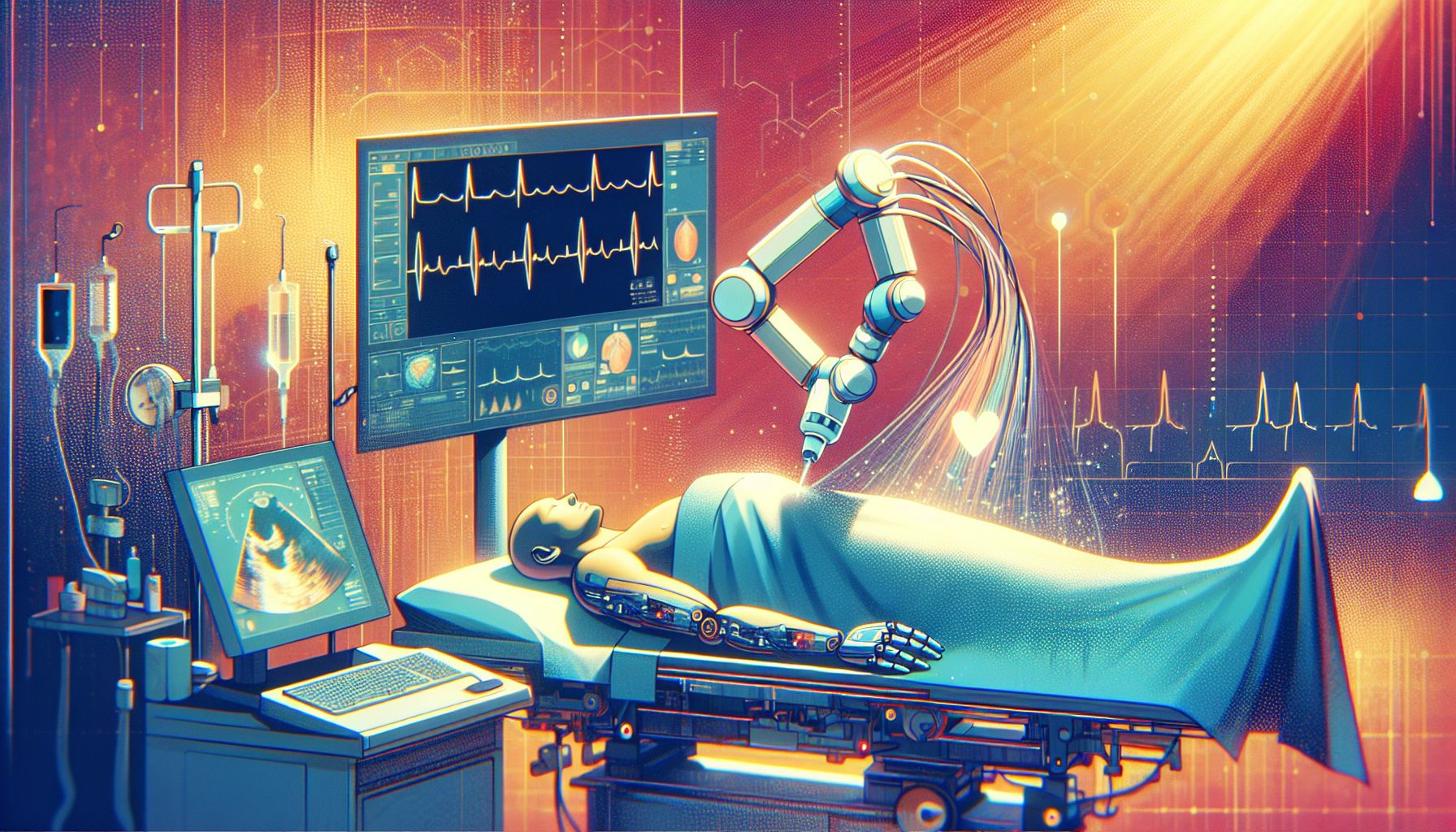Robot-Assisted Echocardiograms Match In-Person Accuracy

London, Thursday, 29 August 2024.
A groundbreaking study presented at ESC Congress 2024 reveals that echocardiograms performed remotely using robotic arm technology and 5G networks achieve 98% diagnostic accuracy compared to conventional in-person exams. This innovation could revolutionize cardiac care access for patients in remote areas.
Introduction of Robotic Arm Technology in Cardiac Care
The study, conducted by researchers from Zhongshan Hospital in Shanghai, China, involved 51 patients who underwent both remote and conventional echocardiography. The robotic arm technology, coupled with 5G communication networks, facilitated remote echocardiograms that matched the diagnostic accuracy of in-person exams in 98% of cases[1][2].
Technological Advantages and Benefits
The adoption of robotic arm technology for remote echocardiograms offers several significant benefits. One of the primary advantages is reducing the need for patients to travel long distances to receive specialized cardiac care, which is particularly beneficial for those living in remote or underserved areas. Furthermore, this technology minimizes the risk of exposure to infectious diseases, such as COVID-19, as cardiologists do not need to be in direct contact with patients[1][3].
How the Technology Works
The robotic arm used in this study is designed to perform comprehensive echocardiographic exams over a 5G cellular network. The system allows a cardiologist to remotely control the robotic arm, obtaining high-quality ultrasound images of the heart. The technology demonstrated a technical success rate of 98%, with only one case where the image quality was insufficient for diagnosis. The image acquisition time for remote echocardiograms was approximately 50% longer than conventional methods, taking an average of 24 minutes and 36 seconds compared to 16 minutes and 15 seconds for in-person exams[1][2][3].
Clinical Outcomes and Future Implications
In the study, conventional in-person echocardiography identified heart problems in 17 patients, including conditions such as valvulopathy, hypertrophic cardiomyopathy, and congenital heart disease. The remote echocardiograms matched these diagnoses in 98% of cases, missing only one instance of papillary muscle level obstruction. This high level of accuracy indicates that remote robotic echocardiography could be a reliable alternative to traditional methods, potentially increasing accessibility to cardiac care on a global scale[1][2][3].
Leadership and Funding
The research was led by Dr. Yu Liu and Xianhong Shu from Zhongshan Hospital, Shanghai. Funding for the study was provided by Zhongshan Hospital Special Funds of Intelligent Medicine. The findings were presented at the ESC Congress 2024, held from 28 August to 2 September in London. The researchers emphasized that larger-scale, multicenter studies should be conducted to further validate the technology before it can be widely implemented in clinical practice[1][3].

